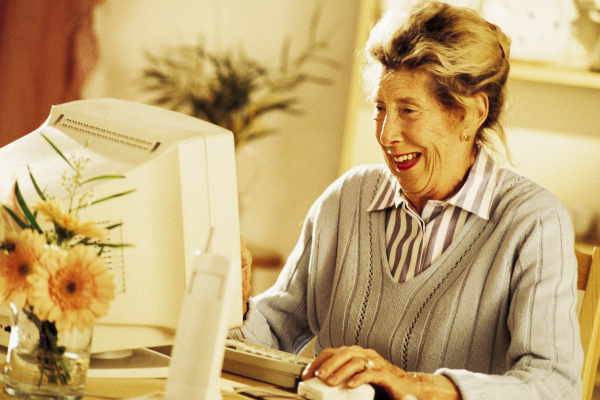 Technology is taking on a bigger role in healthcare. Healthcare reform legislation gave technology a central role and most medical providers have moved to electronic medical records, patient portals and more. About time, some would say, but it is not an easy transition to make for a number of reasons: patient privacy and concerns of patients about what this means to them, how to implement technology across various providers which are generally not coordinated and budgeting for large scale implementations.
Technology is taking on a bigger role in healthcare. Healthcare reform legislation gave technology a central role and most medical providers have moved to electronic medical records, patient portals and more. About time, some would say, but it is not an easy transition to make for a number of reasons: patient privacy and concerns of patients about what this means to them, how to implement technology across various providers which are generally not coordinated and budgeting for large scale implementations.
A couple of recent healthcare experiences have reiterated to me the positive role technology can play. First, I have mentioned before how valuable Caring Bridge, a patient portal/communications tool, has been to my family as we faced major surgery. This only furthered my strong belief in how these systems can improve care. We started using similar patient portals and electronic medical/personal record keeping systems years ago at Aging Wisely and it is hard to imagine life before them. Here are the top reasons I think they are essential:
- Care coordination-particularly for seniors with multiple conditions, caregivers trying to manage an elder’s healthcare and the professionals helping to coordinate care, having accurate records coordinated between multiple parties is essential and can improve outcomes.
- Communications-between providers, but also between family and friends/support networks. This was one of the greatest values to our family, and reduced a lot of time on phone calls which allowed us to handle other tasks as well as have more family time together.
- Emergencies-being able to provide accurate information during stressful times, helping providers to be armed with information to better do their jobs. Our Aging Wisely care managers have found our electronic systems vital to how well we can manage emergency situations.
What are some of the vital factors to overcome barriers to technology in eldercare and healthcare?
- Technology has to solve a “pain” for consumers or medical providers…a problem that is worth the time to learn the technology and other costs. For example, my primary care doctor started using a patient portal and because I travel a lot it is well worth having access to my information online and getting set up with an account to be able to get results and email my doctor. It saves me time, but also reduces paper which only causes me more hassle.
- The technology has to be implemented well without redundancy. Another doctor I go to started using (I use the term loosely) a patient portal a couple years ago…but the office didn’t even know how to access it. I was relieved that I got frustrated inputting my information and gave up when I found that out. Imagine inputting all your data only to find out they were going to make you put it all down on paper again anyway.
- Providers have to address privacy and other patient concerns, and offer options. For example, not long ago I joined in a discussion on Linkedin about doctors’ offices using online or email scheduling. I love the idea of scheduling my appointments that way, because I always seem to think of making the call just after business hours or during lunch when the office is closed. Other people felt differently. Most practices are going to have to provide options…though consumers will likely have to adapt as well as many businesses go towards online solutions (even the Social Security Administration is ending paper statements).
Particularly as family elder caregivers juggle multiple roles and attempt to coordinate their elder’s medical care, technology provides tools to reduce stress and improve outcomes. The question becomes which technologies really solve those caregivers’ pains and create a real demand. As our online world becomes increasingly mobile/smartphone based, the technologies will need to adapt to fit the realities of our lives. One of the best places to keep updated about aging and healthcare technologies and get smart analysis is Laurie Orlov’s Aging in Place Technology Watch.
Have you found any particular technology to be helpful in your caregiving duties or coordinating healthcare? What’s a pet peeve when it comes to healthcare technology?
For more useful tips on managing eldercare and essential steps in the process, we welcome your phone calls any time at 727-447-5845 and we invite you to grab your free copy of our Essential Eldercare Checklist:


 Popular Downloads
Popular Downloads


 Get Our Newsletter!
Get Our Newsletter! Mission Statement
Mission Statement

